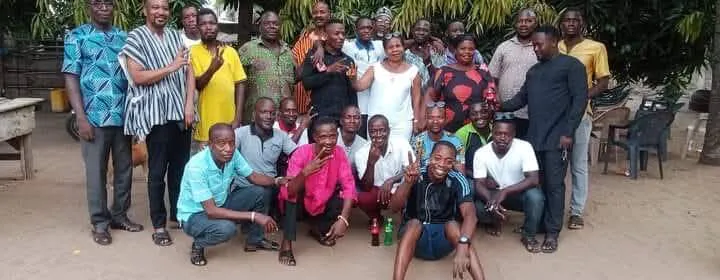The Ketu South Constituency branch of the National Democratic Congress (NDC) in Ghana is facing internal dissent as a group of approximately forty serial callers, individuals who regularly call into radio programs to defend and promote the party’s agenda, have submitted a petition demanding logistical and financial support. This group, which plays a crucial role in shaping public perception and mobilizing support for the NDC, feels neglected and undervalued by the party leadership, claiming their contributions over the past two decades have not been adequately recognized or rewarded. Their petition outlines a list of demands ranging from job placements in various government agencies to the provision of motorbikes, farm inputs, and access to premix fuel distribution. This incident highlights the complex dynamics within political parties, particularly regarding the management and expectations of grassroots mobilizers who often operate with limited resources and recognition.
The serial callers’ primary grievance revolves around the lack of sustainable support for their activities. While they occasionally receive airtime credits and minor incentives, they argue that these gestures are insufficient to compensate for their dedicated service to the party. They emphasize the need for long-term investment in their welfare, drawing an analogy to the proverb about teaching a person to fish rather than providing them with fish every day. This sentiment underscores their desire for empowerment and opportunities that enable them to become self-sufficient rather than relying on sporadic handouts. The petition highlights the precarious position of these grassroots activists who often invest significant time and effort into supporting political parties without receiving commensurate benefits.
The list of demands submitted by the serial callers provides a glimpse into their socioeconomic needs and aspirations. The requests for job placements within government agencies like NADMO, YEA, and National Security, alongside positions in the School Feeding Program and government appointments, reflect a desire for stable employment and opportunities for upward mobility. Similarly, the requests for motorbikes, farm inputs, and access to premix fuel distribution indicate the need for improved transportation, agricultural support, and income-generating opportunities. These demands collectively paint a picture of a group seeking economic empowerment and a greater stake in the benefits derived from their political activism.
The serial callers’ decision to issue a two-week ultimatum to the party’s executive underscores their frustration and determination to have their grievances addressed. By suspending their radio appearances – their primary means of supporting the NDC – they aim to exert pressure on the party leadership. This tactic demonstrates the leverage that grassroots mobilizers can wield within political organizations, particularly in the realm of public communication and shaping public narratives. The ultimatum sets the stage for a period of negotiation and potential compromise between the serial callers and the NDC leadership. The outcome of this standoff will likely have implications for the relationship between the party and its grassroots supporters in the Ketu South Constituency.
The petition submitted by the serial callers raises several key questions about the nature of political participation and the responsibilities of political parties towards their grassroots supporters. It highlights the often-overlooked contributions of individuals who work tirelessly behind the scenes to mobilize support and promote party ideologies. The demands for logistical and financial support also bring to light the economic vulnerabilities of these activists who frequently dedicate significant time and resources to political activities with limited compensation. This incident underscores the importance of recognizing and valuing the efforts of grassroots mobilizers, not just during election cycles, but as an ongoing commitment to fostering a mutually beneficial relationship.
The situation in the Ketu South Constituency serves as a microcosm of the broader challenges faced by political parties in managing the expectations and needs of their grassroots supporters. It underscores the importance of open communication, transparent resource allocation, and genuine recognition of the contributions made by individuals at all levels of the party structure. The outcome of this standoff between the serial callers and the NDC leadership will likely have implications for the party’s ability to mobilize support in future elections and maintain its connection with the grassroots base. It also serves as a reminder of the complex dynamics within political organizations and the need for ongoing dialogue and negotiation to address the concerns of all stakeholders.


